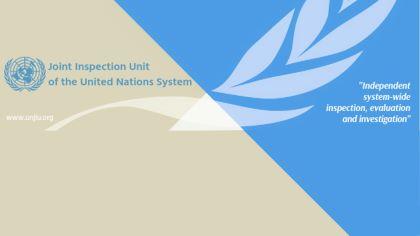Review of the implementation of the principle of mutual recognition within the United Nations system - JIU/REP/2024/4
The Joint Inspection Unit is pleased to announce the release of its report on the implementation of the principle of mutual recognition within the United Nations system, prepared by Inspectors Gaeimelwe Goitsemang and Toshiya Hoshino. Mutual recognition allows United Nations entities to rely on each other’s policies, procedures, and system contracts without requiring additional evaluations, checks or approvals, thereby fostering collaboration and reducing transaction costs. This principle is critical for achieving the Sustainable Development Goals (SDGs), as highlighted in General Assembly Resolutions 71/243 and 75/233. The principle was formalized in 2018 through the Mutual Recognition Statement, now signed by 23 United Nations entities.
The review covered 21 JIU participating organizations that are signatories to the Mutual Recognition Statement and focused on six functional areas: finance, human resources, procurement, logistics, information and communications technology (ICT), and administrative services, as well as common business operations such as common premises, common back offices, and global shared services.
The Inspectors found that the extent of implementation of mutual recognition varies significantly across organizations and functional areas. While the benefits, context, and operational parameters of mutual recognition are widely recognized, several challenges hinder progress. These include the absence of comprehensive system-wide operational guidelines and enforcement mechanisms, incompatible organizational regulatory frameworks, and insufficient coordination among the High-Level Committee on Management (HLCM) Networks tasked with its implementation. These issues have created disparities in how mutual recognition is applied, hindering its potential to streamline operations across the United Nations system.
The report contains five (5) formal recommendations: one directed at legislative organs and governing bodies, one to the UN Secretary-General and three to the executive heads of the participating organizations. The recommendations are aimed at strengthening governance structures, enhancing coordination and policy harmonization. These are supported by 19 informal recommendations, which provide further suggestions for incremental improvements.
Mutual recognition is a vital tool for enhancing efficiency and collaboration within the United Nations system. By addressing the challenges identified in this report and implementing its recommendations, the United Nations can better leverage mutual recognition to fulfill its commitments to Member States and achieve the SDGs.
Access the full report here
Access the review highlights here


